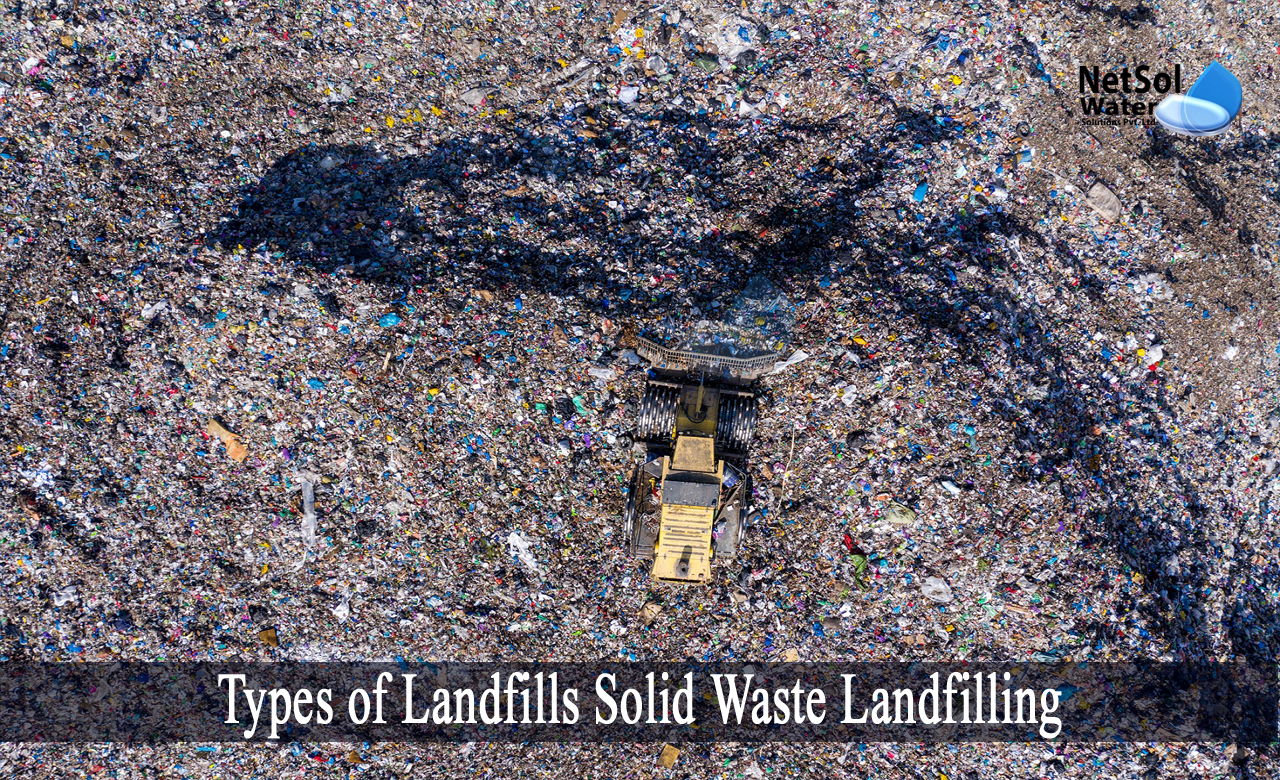How many types of Landfills?
Landfills are closely supervised facilities meant to dispose of solid waste responsibly. Every location has different sorts of landfills, to handle different types of waste, such as residential waste, commercial waste, organic materials, industrial waste, etc.
In the given article, we will describe some of the types of landfills for solid waste landfilling or disposal.
Landfill classifications: Types of landfills
· Landfills for Municipal Solid Waste
If you dump the waste in the dumpster, chances are that it will end up in a municipal solid waste (MSW) landfill. When you think of a landfill, this is usually what comes to mind. However, just because they are the most popular type does not mean they are accessible, to the general population.
MSW landfills have the tightest safety and monitoring rules, because they handle the majority of domestic waste kinds - everything from used tissues to cardboard boxes. These regulations frequently include restrictions on location, landfill lining, operational operations, groundwater monitoring, and closure procedures.
· Landfills for Industrial Waste
A landfill for industrial waste is a facility for disposing of industrial waste. While, these landfills can accept any type of solid industrial waste, they are most commonly used for construction waste disposal, hence the name C&D landfills.
In the industrial landfills, these seven items are typically dumped:
- Concrete
- Lumber
- Asphalt
- Gypsum
- Metal
- Bricks
- Components of construction (doors, countertops, cabinets, etc.)
· Landfills for Hazardous Waste
These are the most strictly controlled landfills. They are specifically intended to contain hazardous waste, in a way that almost precludes the possibility of its release into the environment.
The following are some of the design requirements for hazardous waste landfills:
- Liner doubles
- System for collecting and removing leachate twice
- Systems for detecting leaks
- Programs for ensuring construction quality
· Landfills for Green Waste
While, these are not officially sanctioned landfills, many communities are beginning to provide a location for organic waste to degrade naturally. Because, most traditional landfills and transfer stations are not as welcoming of organic products, like fruits and vegetables, and especially yard waste disposal, the number of composting facilities is growing.
The following are examples of common types of green waste:
- Mulch
- Weeds
- Leaves
- Branches of trees
- Food waste that is biodegradable
- Flowers and grass snips
Processes of Solid Waste Management: Stages of solid waste management
The solid waste management process is separated into several parts.
Solid waste is produced, processed, stored, transferred, collected, recycled, and disposed of. These stages are discussed further below.
|
Stages of Solid Waste Management |
Description |
|
Waste Production at Source |
Natural resource exploitation, product manufacturing, product usage, and material depreciation and disposal. |
|
Primary waste collection and processing on-site |
Processing (which includes waste component separation and resource/energy recovery), and storage at or near the site of generating. |
|
Waste Communal Storage |
Waste collection from sources by external bodies, and transfer stations or nearby disposal locations, or waste collecting by micro-enterprises. |
|
Transfer station |
Storage at communal bins, containers, or designated locations for solid waste collection, by external entities is common in low-income nations (for all waste categories). |
|
Secondary waste collection |
Waste transportation from small collecting vans, to huge hauling vehicles. |
|
Recyclability, processing, and resource recovery |
Waste collection from a secondary storage location, and transportation to a final disposal location. |
|
Waste Disposal |
Typically, the treatment facility is the ultimate stage of solid waste management. |
Conclusion
Solid waste landfilling is becoming a hazard for the environment as it grows over time. To avoid this problem, everyone needs a better solution, such as proper waste management, which involves waste reduction, recycling, efficient waste treatment, and waste disposal.
How can we assist?
With this growing issue, Netsol Water accepts the obligation of providing, sophisticated solid waste management solutions.



